everyday evangelism
God’s plan to reach
the world: it might
surprise you

Glen Scrivener
Date posted: 1 Aug 2021
‘If I became a Christian, I would have to
spend every waking moment trying to save
others.’
The words
came
from
an
extremely
intelligent student considering
the call of
Christ – let’s call him Phil. It was the last
night of a university mission and Phil told
me he was terrified of the gospel being true
because if it was he couldn’t imagine how he
could justify anything other than a life of
unceasing evangelism from that day on.

Are we missing the point of the Bible?

James Cary
Date posted: 1 Aug 2021
We all thought there were four but actually there are five. Not Gospels, but tastes. There’s sweetness, sourness, saltiness and bitterness. And the fifth is umami, the Pete Best* of the culinary world that was there from the beginning. Umami is a meaty, broth-like, or savoury taste.
What’s your favourite taste? For me, there’s nothing better than a juicy ripe sliced tomato with olive oil, salt, red onion and basil, accompanying a medium-rare T-bone steak with some twice-cooked chips. And mustard mayo. There’s a restaurant in Stellenbosch in South Africa which did that to perfection. One day, I hope to return there for that transcendent experience.

Reaching the unreached on the roof of the world
Slavic Gospel Association
Date posted: 1 Jul 2021
Geographically and physically, the region of Pamir in Tajikistan is an area of outstanding beauty.
The Pamir mountains are lofty and lonely, one of the last ‘undiscovered’ regions on earth, and one of the ‘world’s best kept secrets’ according to a former British ambassador to the country. The average height of the mountains in the eastern Pamir region is over 20,000 feet above sea level.

everyday evangelism
Is evangelism to blame?
A Buddhist critiques our
lack of godliness

Glen Scrivener
Date posted: 1 Jun 2021
On the Speak Life Podcast, Paul Feesey
and I have been discussing
the various
scandals rocking the evangelical world —
particularly those of Ravi Zacharias and
Jonathan Fletcher.
While some have questioned our focus
on these topics (when we’re meant to be
inspiring evangelism), one listener had the
opposite observation. Writing as a Buddhist
he had
some blistering criticisms of
the
evangelical church – a critique which I think
is very worth considering.
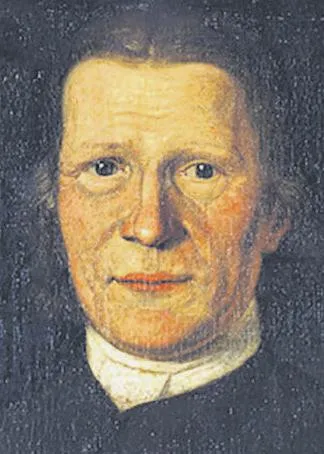
history
David Zeisberger’s zest for spreading the gospel

Michael Haykin
Date posted: 1 May 2021
When William Carey drew up his paradigm-changing book An Enquiry into the Obligations of Christians to Use Means for the Conversion of the Heathens in 1792, he included a mini-history of missions.
He cited examples of missionaries passionate for the expansion of the rule of Christ. In this mini-history, he referenced a remarkable missions-minded community, the Moravians. Carey’s words about this 18th-century body of believers are tantalisingly brief, but indicative of their influence upon him. ‘When I came to evangelism and missions,’ Carey noted, ‘none of the moderns have equalled the Moravian Brethren in this good work’.
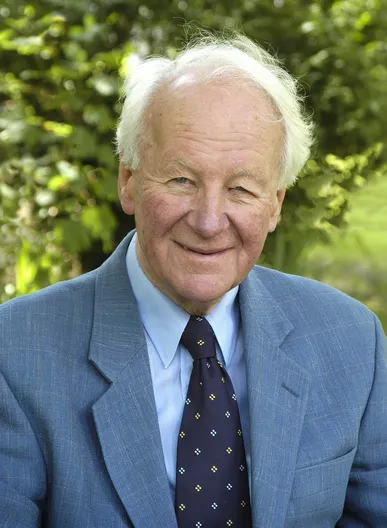
John Stott: Abrahamic and apostolic?
Chris Wright
Date posted: 1 Apr 2021
Chris Wright suggests the scale and scope of Stott’s ministry were epic
‘I am a great believer,’ John Stott would often say, ‘in the importance of B.B.C. Not the British Broadcasting Company, nor Bethelehem Bible College, nor even Beautiful British Columbia. But “Balanced Biblical Christianity”.’ In my own assessment of John’s life and ministry I suggest a Biblical balance of Old and New Testaments by saying that the scale and scope of John Stott’s significance within the global church has been both Abrahamic and apostolic.

When God says ‘go!’ and you say ‘no!’
David Nixon
Date posted: 1 May 2021
Has there ever been a time when God has called you to ‘GO!’ and you’ve replied ‘NO!’? If you’re anything like me, then the honest answer will be: yes.
But not because you were wanting to be disobedient, but rather because you were feeling disabled by inadequacy. In those moments the soundtrack playing inside your head is like Robbie Williams’ hit track ‘I love my life’ played backwards. You don’t hear the words: ‘I am wonderful, I am magical, I am free’; instead you rehearse the lyrics: ‘I am weak, I am sinful, I am unable’.

evangelicals & catholics
Are we all ‘Children of Abraham’?

Leonardo De Chirico
Date posted: 1 Jun 2021
Whenever we talk about lands tormented by decades of wars and violence, sometimes perpetrated in the name of religions, we must do so with sobriety.
This is to say that commenting on Pope Francis’ recent trip to Iraq (5-8 March 2021) can become a pretext for easy criticism if one does not try to enter the complexity of the situation. Therefore, it must be acknowledged that the Roman pope’s call to religious freedom, his appeal to respect for minorities, and his invitation to national conciliation were commendable.

politics & policy
Assisted dying: opening Pandora’s box

James Mildred
Date posted: 1 Jun 2021
The starting pistol has been fired in the race to legalise assisted suicide.
After appearing before the End of Choice All Party Parliamentary Group, the Health Secretary Matt Hancock then wrote to the national statistician, Ian Diamond, requesting information on the number of terminally-ill patients who had killed themselves because of their diagnosis. Mr Hancock wants a new debate on the issue and there are plenty other MPs who want the same.

Waking up to the dystopian world of deepfakes
By Andy du Feu
Want to see Tom Cruise perform a magic trick, joke about ex-presidents, or tee-off?
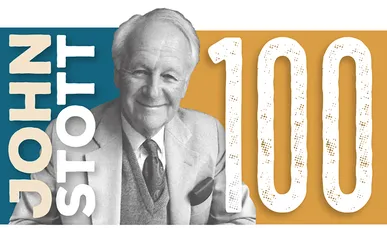
John Stott - what you should know
Julia Cameron
Date posted: 1 Apr 2021
The centenary of John Stott’s birth falls on 27 April 2021. As he died ten years ago, his name won’t be well-known to younger readers. This is one reason why we are holding centenary events, to introduce his name and his legacy to a new generation.
The breadth of John Stott’s influence is remarkable. Aged 29, he was appointed Rector of All Souls Langham Place, next door to the BBC. He wrote years later of how ‘dissatisfaction’ is a mark of a leader, and he showed it himself from early days. Decades before the term ‘fresh expressions’ was coined, he opened the All Souls Clubhouse, a church for the unchurched, in the poorer part of his parish. He started guest services, then unheard-of, beginners’ groups, and training courses for lay leaders. And he was a seer. So international students became a focus in the post-colonial 1960s as newly-established governments began sending their most able to the UK. The list goes on.
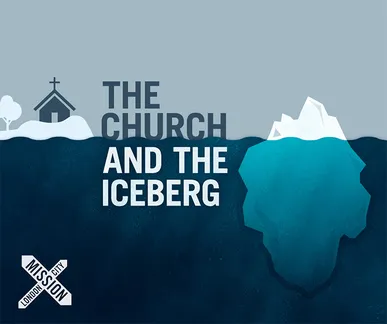
The training is over, the iceberg is here
Graham Miller
Date posted: 1 Apr 2021
After 100’s of hours of hearing the gospel preached, will Bible-believing Christians now apply what they have heard, and be a conduit for God’s blessing to the poor?
The tip of the iceberg has been horrendous. The number of deaths is impossible to even reconcile. And they tell little of the pain and suffering that each death has left behind.

ten questions:
Alex Jacob
1. How did you become a Christian?

Damnable heresy or useful tool?
Ray Porter, formerly Director of World Mission Studies at Oak Hill Theological College and Chair of Global Connections responds to the article ‘The contextualised gospel – delightful, doubtful or damnable’ published in the February issue of en.
The history of contextualisation has almost as many failures as successes. Dr Wells and his daughter have questioned some patterns of contextualisation that are embraced in mission circles today and suggested that they in fact represent ‘another gospel’.
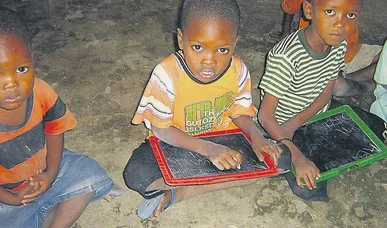
The Bible in action
'It is a blessing to translate the Bible in my language'

Bryony Lines
Date posted: 1 Mar 2021
‘Ever since I tasted the goodness of the Lord, I have desired that my own people would come to know Him and His salvation,’ says Simon, whose name has been changed to keep him safe. ‘It has been such a blessing to be able to work on translating the Bible into my language.’
‘Before I became a Christian, I was going on with my life in the best way I knew how,’ continued Simon. ‘Although I am from a hunter-gatherer community, my family had moved from the interior villages of Kenya while I was young, and came to more of a mixed (multicultural) community.’

The contextualised gospel – delightful, doubtful, or damnable?
Tim Wells and Lois H.M. Wells
Date posted: 1 Feb 2021
What is the gospel? That sounds like a pretty basic question that every Christian knows the answer to. But wait, what are your ‘go-to’ Bible verses if you were asked to sum up the key elements of the gospel? Take a minute to jot them down – we will return to them later.
The gospel, like the spectrum seen in a quality diamond, radiates an exquisite array of themes. Each of the four Gospels, for example, has its own unique emphasis on the person and work of Jesus: Matthew (Jesus as King), Mark (Jesus as Servant), Luke (Jesus as Man) and John (Jesus as God). They also record how our Saviour brought the good news to a kaleidoscope of cultures, classes, religious standings, genders and ages. But how much should this variety in the starting point of the hearer determine the nature of the gospel message presented to them?
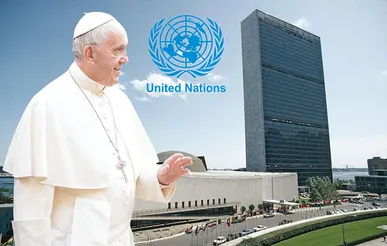
evangelicals & catholics
Pope Francis, United Nations Chaplain?

Leonardo De Chirico
Date posted: 1 Apr 2021
In observing the recent global activities of Pope Francis, the Argentinian philosopher Rubén Peretó Rivas asked whether Pope Francis aims at becoming the ‘Chaplain of the United Nations’.
His 2020 ‘universal’ initiatives indeed look like those of the United Nations in language, scope and content. While the encyclical ‘All Brothers’ reiterated the Roman Catholic universalism two (en, December 2020), other projects deserve to be mentioned in this respect.
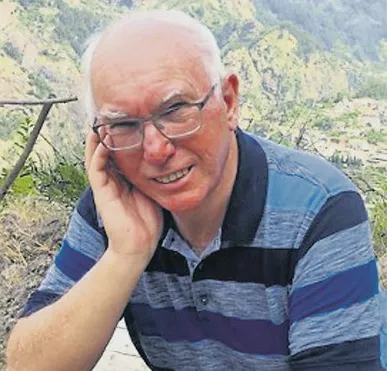
ten questions
David Norbury
1. How did you become a Christian?

Church planting: is the old method best?
Deiniol Williams
Date posted: 1 Feb 2021
Church planting can sometimes seem like a relatively new phenomenon, but whether it is or not depends on what you mean by church planting.
A good friend and mentor of mine – who has planted two churches in France – believes that when Paul instructed Timothy to ‘do the work of an evangelist’ (2 Tim. 4:5), he was instructing him to plant churches. To evangelise – to make disciples of all nations (Mat 28:19) – is to see churches started. Church planting, in this sense of the term, is as old as the early church.

2021: LOOKING AHEAD
A variety of evangelicals reflect on what might lie ahead in the next 12 months
Innovative evangelism? Adrian Reynolds, Associate National Director FIEC
 I hope and I pray that 2021 will see churches give evangelism its appropriate focus. In general terms, the lockdown has held us back: churches have often succumbed (understandably) to survival mode – let’s just keep going! Others have seen opportunities, but have not really known how to make the most of them. Others still have not known how to adapt to a changing environment and have simply mourned what they cannot do rather than explore what they can.
I hope and I pray that 2021 will see churches give evangelism its appropriate focus. In general terms, the lockdown has held us back: churches have often succumbed (understandably) to survival mode – let’s just keep going! Others have seen opportunities, but have not really known how to make the most of them. Others still have not known how to adapt to a changing environment and have simply mourned what they cannot do rather than explore what they can.
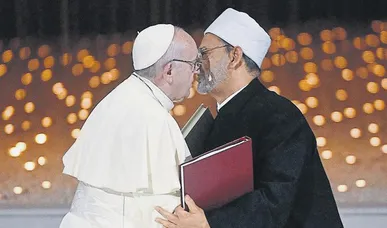
evangelicals & catholics
Roman Catholic universalism?

Leonardo De Chirico
Date posted: 1 Dec 2020
It has been rightly called the ‘political manifesto’ of Pope Francis’ pontificate.
In fact, there is a lot of politics and a lot of sociology in the new encyclical All Brothers, a very long document (130 pages) that looks more like a book than a letter. Francis wants to plead the cause of universal fraternity and social friendship. To do this, he speaks of borders to be broken down, of waste to be avoided, of human rights that are not sufficiently universal, of unjust globalisation, of burdensome pandemics, of migrants to be welcomed, of open societies, of solidarity, of peoples’ rights, of local and global exchanges, of the limits of the liberal political vision, of world governance, of political love, of the recognition of the other, of the injustice of any war, of the abolition of the death penalty. These are all interesting ‘political’ themes which, were it not for some comments on the parable of the Good Samaritan that intersperse the chapters, could have been written by a group of sociologists and humanitarian workers from some international organisation, perhaps after reading, for example, Edgar Morin and Zygmunt Bauman.

history
Of Bede and birds

Michael Haykin
Date posted: 1 Jan 2021
Last month we looked at the life of Bede
(c.673–735),
the Anglo-Saxon historian
who is best known for his Church History
of the English People (Historia Ecclesiastica
Gentis Anglorum).
Why does this historical work – which
traces
the history of England
from
the
Roman occupation to 731, the year that
it was completed, as well as detailing the
conversion of
the Anglo-Saxon peoples –
merit calling Bede a model historian?

A safe church is a transparent one

Carl Chambers
Date posted: 1 Jan 2021
Carl Chambers argues that victims of abuse have been failed by churches too easily covering things up
In 2015, Matthew Syed published a book called Black Box Thinking. He contrasts the culture of the airline industry with the health service in the US and UK.

history
Bede, the quiet monk who lived through events that shook the world

Michael Haykin
Date posted: 1 Dec 2020
If I were asked which historian I would love to meet apart from the Biblical authors, I would say, without hesitation, Bede (c. 673–735).
An English Benedictine monk and scholar, Bede is chiefly known for his Church History of the English People (Historia Ecclesiastica Gentis Anglorum), a history of England from the Roman occupation to 731, the year that it was completed. In the Middle Ages, though, Bede was equally known for his 20 or so commentaries on various books of the Bible and a work on the Lord’s Prayer. In all, Bede wrote about 40 works, nearly all of which are extant. Regretfully, one that we do not have is his translation of the Gospel of John into Anglo-Saxon.